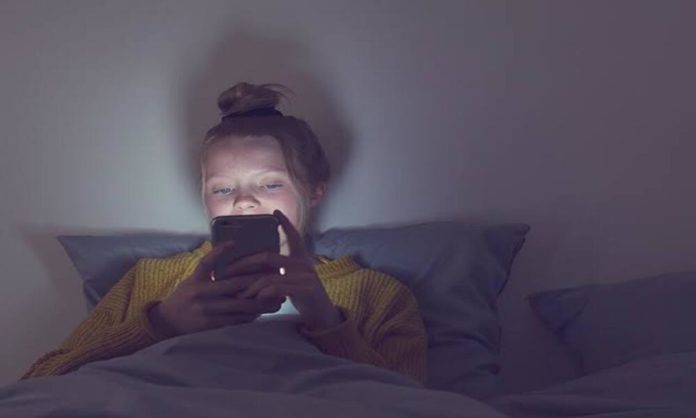A recent study has discussed the dreadful effects of social media on children’s routines as it concluded that almost 70% of children are losing sleep equivalent to one night every week.
The study conducted at De Montfort University Leicester in the U.K. suggests that 12.5% of 10-year-olds are losing about one night of sleep per week because they’re waking up in the middle of the night to check notifications.
Social Media Engagement & Sleep
Psychology lecturer John Shaw, who headed the study, said that children were supposed to sleep for between nine to 11 hours a night, per NHS guidelines, but those surveyed reported sleeping an average of 8.7 hours nightly.
The study involved 60 students, age 10, from schools within Leicester. The study groups reported the use of social media for “more than four hours a day, with two-thirds saying they were using it in the hours before bedtime.”
Read More: What Is The Right Age For A Child To Get A Smartphone
“The fear of missing out, which is driven by social media, is directly affecting their sleep. They want to know what their friends are doing, and if you’re not online when something is happening, it means you’re not taking part in it,” Shaw shared at the British Science Festival last week.

“And it can be a feedback loop. If you are anxious, you are more likely to be on social media; you are more anxious as a result of that. And you’re looking at something that’s stimulating and delaying sleep.”
Apps With The Most Engagement
Among the social media apps TikTok received the most engagement from children, with 90% of those surveyed saying they used the app. Followed by Snapchat with 84%, while just over half of those surveyed said they used Instagram.
According to researchers, this is the first study of its kind to look in depth at how social media sites such as TikTok and Instagram may be affecting the sleep and emotions of pre-teens.
“I suppose it is that knock-on effect on sleep and what that means for the children in terms of their cognitive development and really their social development as well because if they are always online, what does that mean for them with their in-person socialisation.” Said Shaw.
“Sleep is very important for emotion processing and memory consolidation, creativity and problem-solving among children. When they are not getting enough sleep, those processes don’t get a chance to occur,” he added.
“When it comes to biological processes during sleep, when we enter slow-wave sleep, our body rests, recovers releases growth hormone. They’re still growing, that’s why younger people tend to get more sleep than adults because they are going through biological changes.”
Read More: Study Shows Kids Likely To Get Asthma If Parents Were Exposed To Tobacco Smoking
Stay tuned to Brandsynario for the latest news and updates.









































